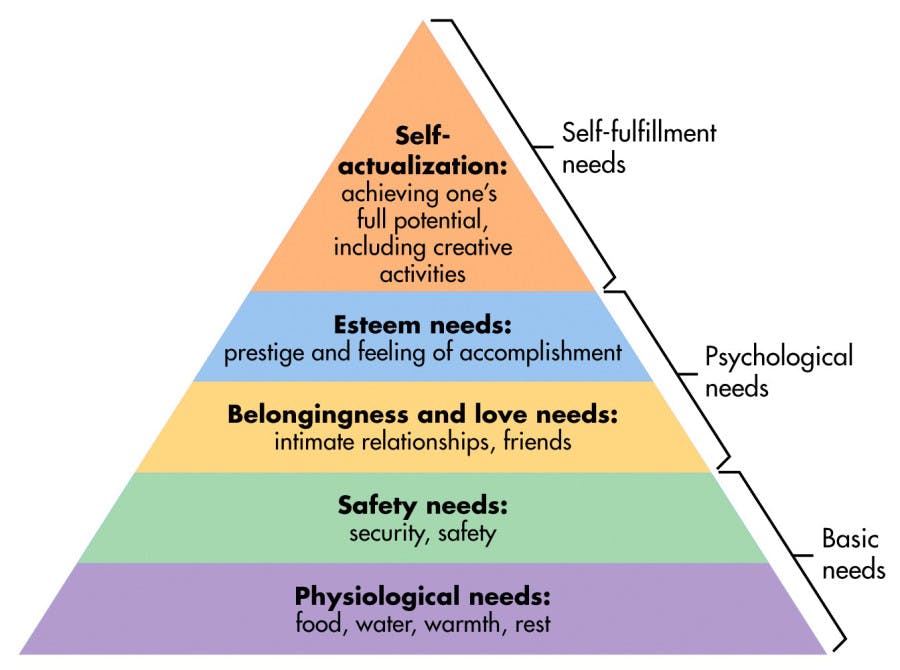https://artsofthought.com/2018/04/22/maslow-15-traits-of-self-actualized-people/
The Democratic Character Structure
“All my subjects may be said to be democratic people in the deepest possible sense… they can be and are friendly with anyone of a suitable character regardless of class, education, political belief, race or color… it is as if they are not even aware of these differences.” (Maslow, 1970). These individuals often select friends of an elite nature, thought not elite in birthright, race or color; but rather eliteness of character, capacity and talent.
These people easily learn from anybody who has something to teach them, no matter what characteristics they may have. This quality is often viewed as humility in the purest form. The majority of Maslow’s subjects exhibited an ability to respect all humans, just based on the fact that they are a fellow human being. This goes along with their very strong sense of right and wrong, or good and evil. Self-actualized people “are more likely rather than less likely to counterattack against evil men and evil behavior.” (Maslow, 1970).
12. Discrimination Between Good and Evil
“These individuals are strongly ethical, they have definite moral standards, they do right and do not do wrong. Needless to say, their notions of right and wrong and good and evil are often not the conventional ones.” (Maslow, 1970).
Self-actualizing people rarely have to debate within themselves whether or not an action is right or wrong. They seem to have an innate sense of right and wrong, though this sense may differ from that of the religious nature. These people may not even be religious at all.
13. Philosophical, Unhostile sense of Humor
“Their sense of humor is not of the ordinary type. They do not consider funny what the average man considers to be funny. They do not laugh at hostile humor or superiority humor… characteristically what they consider humor is more closely allied to philosophy than anything else… more akin to parables or fables.” (Maslow, 1970).
Self-actualized people tend to joke about humanity as a whole, and all of its shortcomings. Abraham Lincoln was a great example of this, he probably never made a joke that hurt anyone. His jokes always had a function beyond just invoking a laugh. They often carried with them subtle gems of wisdom.
14. Creativeness
“Each one shows in one way or another a special kind of creativeness or originality or inventiveness that has certain peculiar characteristics… which is akin to the universal creativeness of unspoiled children.” (Maslow, 1970).
Maslow goes on to say that this creativeness is different than that of a musician, or an artist. It is more related to the self-actualized person’s ability to do anything they are engaged in with a certain style. It is as if they are less inhibited or don’t care as much about how other people view them or their actions, this brings with their actions a certain freedom and beauty.
This creativeness is also closely akin to spontaneity, which is closely related to some of the behaviors seen


 You and mcawb are sure two fags in a pod when it comes to being stupid arent you
You and mcawb are sure two fags in a pod when it comes to being stupid arent you